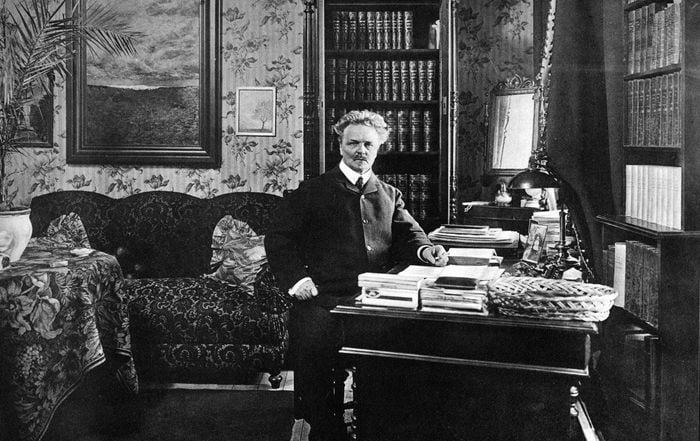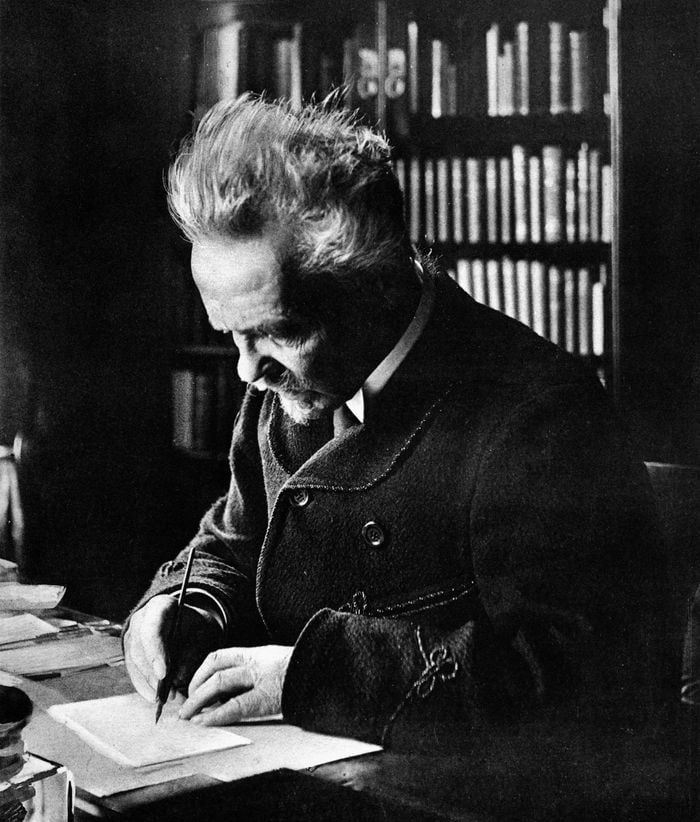Love and Bread – Sweden
August Strindberg (1849-1912)
August Strindberg, born of a poor and humble family, is one of the most celebrated figures in modern European literature. He engaged in many professions during his youth, and was a writer of plays, novels, scientific and philological works, and stories. He was one of the chief innovators in the modern Naturalistic movement. His powerful studies of contemporary life are personal and psychological interpretations of society according to his own peculiar philosophy.
Love and Bread is typically Strindbergian in its cynicism. The present anonymous translation was published in SHORT STORY CLASSICS. Copyright, 1907, by P. F. Collier & Son, by whose permission it is here reprinted.
Love and Bread
When young Gustaf Falk, the assistant councilor, made his ceremonial proposal for Louise’s hand to her father, the old gentleman’s first question was: “How much are you earning?”
“Not more than a hundred kroner a month. But Louise—”
“Never mind the rest,” interrupted Falk’s prospective father-in- law; “you don’t earn enough.”
“Oh, but, Louise and I love each other so dearly! We are so sure of one another.”
“Very likely. However, let me ask you: is twelve hundred a year the sum total of your resources?”
“We first became acquainted at Lidingo.”
“Do you make anything besides your government salary?” persisted Louise’s parent.
“Well, yes, I think we shall have sufficient. And then, you see, our mutual affection—”
“Yes, exactly; but let’s have a few figures.”
“Oh,” said the enthusiastic suitor, “I can get enough by doing extra work!”
“What sort of work? And how much?”
“I can give lessons in French, and also translate. And then I can get some proofreading.”
“How much translation?” queried the elder, pencil in hand.
“I can’t say exactly, but at present I am translating a French book at the rate of ten kroner per folio.”
“How many folios are there altogether?”
“About a couple of dozen, I should say.”
“Very well. Put this at two hundred and fifty kroner. Now, how much else?”
“Oh, I don’t know. It’s a little uncertain.”











